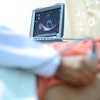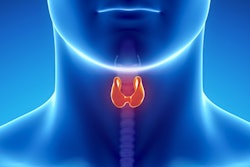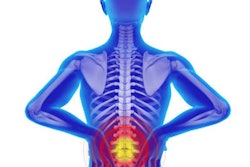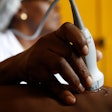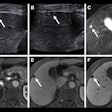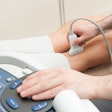I heard a story from a colleague about a 10-year-old boy in rural Uganda named Jonathon Goodfaith who was hit by a car and broke his tibia. There was no x-ray available. The fracture was put in a cast without proper reduction, and he will have a limp for the rest of his life -- a life of pain and discomfort, all for lack of an x-ray.
Over 50% of the world's population (4 billion people) have no access to imaging, a number thought to be much higher in rural areas. Healthcare inequality -- and especially imaging inequality -- appears to be insurmountable on the surface and growing worse with each passing year. This is a solvable problem.
What can I do? How can I help from my office in Denver, Colorado? These were two questions I often asked myself.
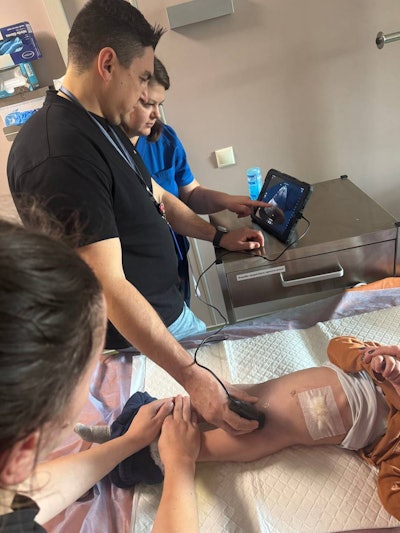 The First Read Initiative donated 7 Butterfly iQ+ ultrasound devices to the Ohmatdyt Children's Hospital in Kyiv, Ukraine. All photos courtesy of Josh Sokol, MD.
The First Read Initiative donated 7 Butterfly iQ+ ultrasound devices to the Ohmatdyt Children's Hospital in Kyiv, Ukraine. All photos courtesy of Josh Sokol, MD.
I soon discovered that many colleagues have started charities to address the massive lack of imaging resources worldwide. From large diverse charities such as RAD-AID International to smaller "mom and pop"/passion project charities such as Humanitarian Radiology Development Corp, there are many who put themselves on the frontlines of this battle, giving their time and money to help thousands in need.
I look at my colleagues all over the world and I am inspired. I am moved by their commitment to bring radiology resources to improve the lives of millions. Working in Tigray, Cambodia, and hundreds of other impoverished areas, many people sacrifice income, time with family, and often their own safety to help those in need. They are dedicated, selfless, compassionate, and committed.
I am not one of these people. I have sick parents, two small children, a full-time job, and coach sports at the weekend. I can't just take three weeks off to fly to Togo, Guatemala, Laos, and the hundreds of other regions in desperate need of imaging resources.
About 12 years ago, vRad radiologists had the option to volunteer to read x-rays from Doctors Without Borders and Haitian Relief Services, a small nonprofit organization. The response was overwhelming. Many of the radiologists wanted to contribute and support our colleagues doing charitable work.
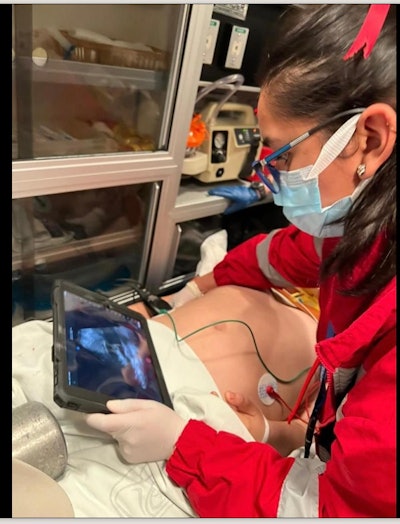 Emergency Medical Services (EMS) in Tijuana, Baja California, Mexico.
Emergency Medical Services (EMS) in Tijuana, Baja California, Mexico.
In 2018, we decided that instead of reading an x-ray sent to us by charities, we could read an x-ray for charities. At vRad, we started a program where radiologists could donate the compensation from their first x-ray read of the day to a charitable fund that would help address the lack of imaging resources around the world. All a radiologist has to do is sign up for the program and the company takes care of everything else. It is that simple.
As we approach 2025 and $1,000,000 raised, the vRad First Read Initiative is stronger than ever. We have brought point-of-care ultrasound (POCUS) and training to multiple areas in Central and South America, rural Cambodia, and even the frontline battlefields of Ukraine. We have helped repair CT and x-ray machines, donated monitors, and supported radiology training and education in over 15 countries.
One x-ray a day, or one minute a day -- that's all it takes to win this battle. Let's come together as a global radiology community and help our colleagues bring the power of imaging to millions of people. We can all help from the comfort of our home or office and leverage our skills to help fund charities all over the world. Start your own x-ray-a-day program, engage your colleagues, look for opportunities to leverage your skillset. Volunteer, travel, teach, or just dedicate the first x-ray of your day to bring the power of radiology to the world.
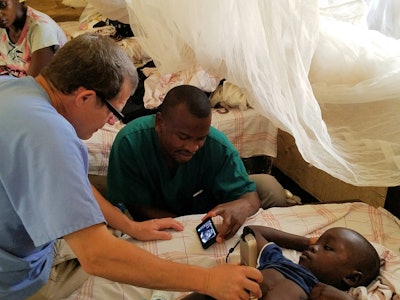 The clinical team perform an ultrasound scan at the Nyankunde Hospital, the Democratic Republic of the Congo, where Warren Cooper, MD, has performed operations ranging from repairing broken bones to craniotomies for over a decade.
The clinical team perform an ultrasound scan at the Nyankunde Hospital, the Democratic Republic of the Congo, where Warren Cooper, MD, has performed operations ranging from repairing broken bones to craniotomies for over a decade.
I may not be on the front lines, but I am proud to do my part. It has brought meaningfulness and purpose back to my workday. From a dedicated surgeon caring for over 1,000,000 displaced people in the Democratic Republic of the Congo to an academic radiologist trying to bring basic prenatal ultrasound to Togo, our radiology and clinical colleagues are making a difference every day. Join the battle against imaging inequality and maybe, just maybe, we can ensure that no child has to suffer like Jonathon Goodfaith.
Josh Sokol, MD, has worked as a teleradiologist for vRad since 2009. He is also a co-founder and director of First Read Initiative.
The comments and observations expressed herein do not necessarily reflect the opinions of AuntMinnie.com, nor should they be construed as an endorsement or admonishment of any particular vendor, analyst, industry consultant, or consulting group.


